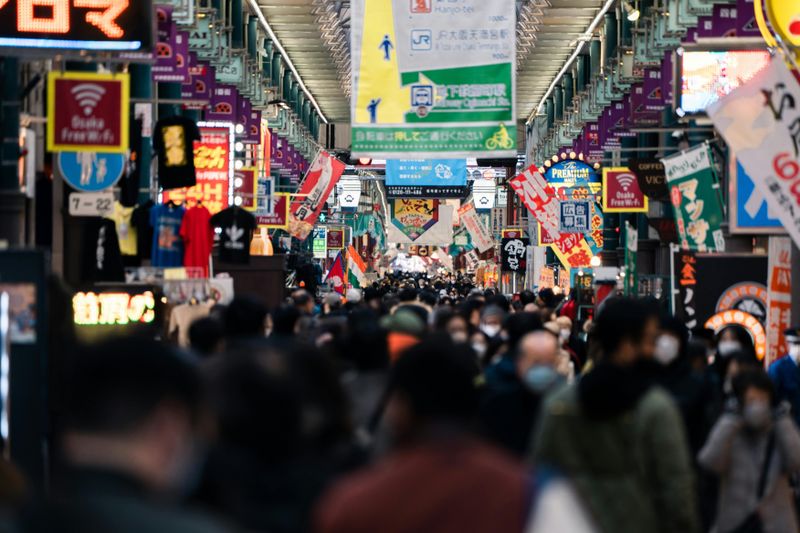Jun 23, 2024
A solution to overtourism?
You’ll see that many of the place reviews I write for temples and shrines indicate a cost of 5 yen. This offering is common as 五円, goen, five yen is a homophone for 御縁, en being connection, and go the respectful prefix. It’s essentially a way of greeting the temple or shrine.
Overtourism firsthand at Asakusa
When I was at Asakusa during Golden Week this year, I couldn’t get near Sensoji, the ancient temple, because of the dense crowds of tourists. I made my way to Sensoji Shrine where I could put my hands together and say “Thanks for having me!” In front of the 賽銭箱, saisenbako, the offertory box, but a young foreign woman stood with her back to the sanctuary, blocking the box. I wandered about the precincts for a bit until she moved on so I could do my offering thing. My detour took me past hordes of people snacking while walking and tatty tourist shops.
A crowded Osaka shopping street, photo Satoshi Hirayama
Is Japan too cheap?
In the Japan Times last week, an opinion piece by a former tour guide suggests that Japan impose a reasonably leveled tourist tax to tackle over-tourism and to pump tourist revenue into projects to bring young and old visitors on excursions to experience rich cultural experiences in parts of Japan that don’t get attention on social media.
I’m with her on this. Consider that Kyoto, ranked as a top tourist destination, has been facing bankruptcy. Despite the huge influx of tourists causing strain on the city’s infrastructure and bringing in cash, the city struggles with generating tax revenue. Japan Times’ Deep Dive explores the historical and political reasons why. One of them comes back to that coin you offer at the shrine or temple - religious-affiliated buildings don't generate municipal tax revenue.
No thanks to two-tier pricing
City-Cost blogger Genkidesu wrote about the deeply problematic idea of a two-tier price system. As a tax-paying foreign resident, I would expect I would pay the local price. But does that mean that at landmarks and attractions, I’d have to show my ID to prove I’m a resident? What about Japanese citizens who may not look Japanese? Would ethnic Japanese from abroad exploring their roots have to pay the foreign visitor price? As Genkidesu says, this could set up discriminatory practices.
Do you think a tourist tax is a solution? What impact would it make on your visitors from abroad?



0 Comments